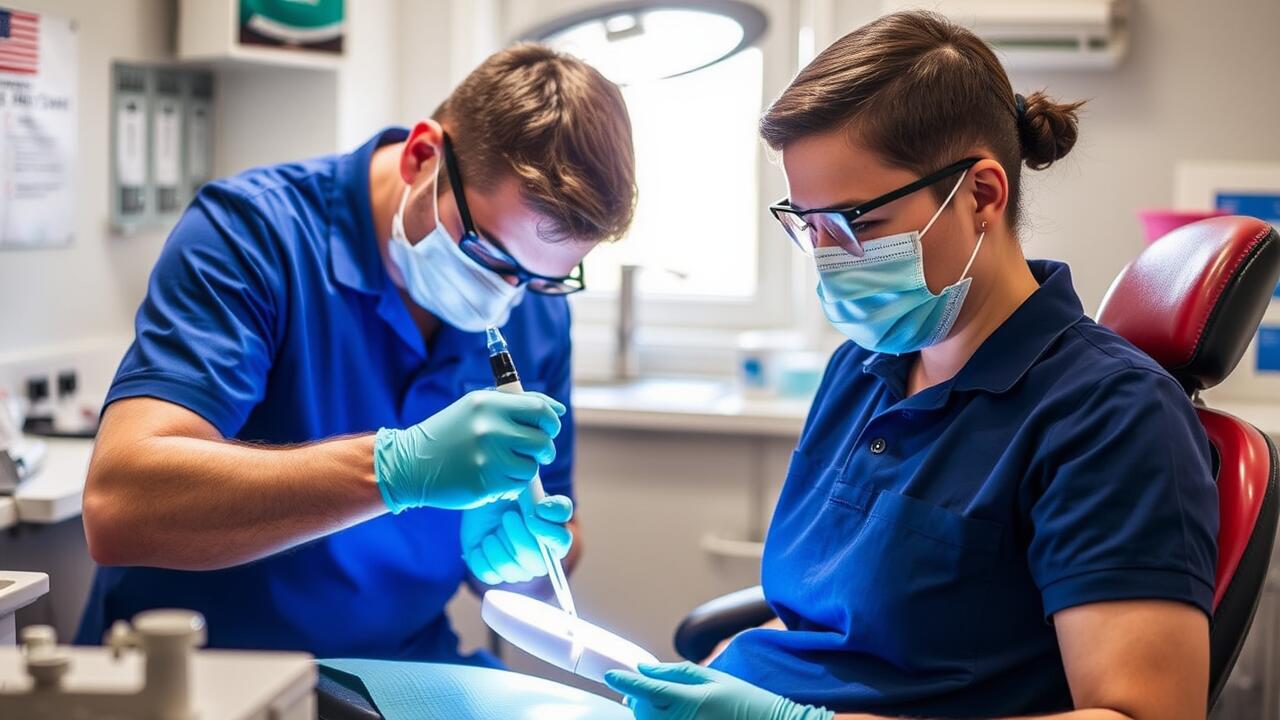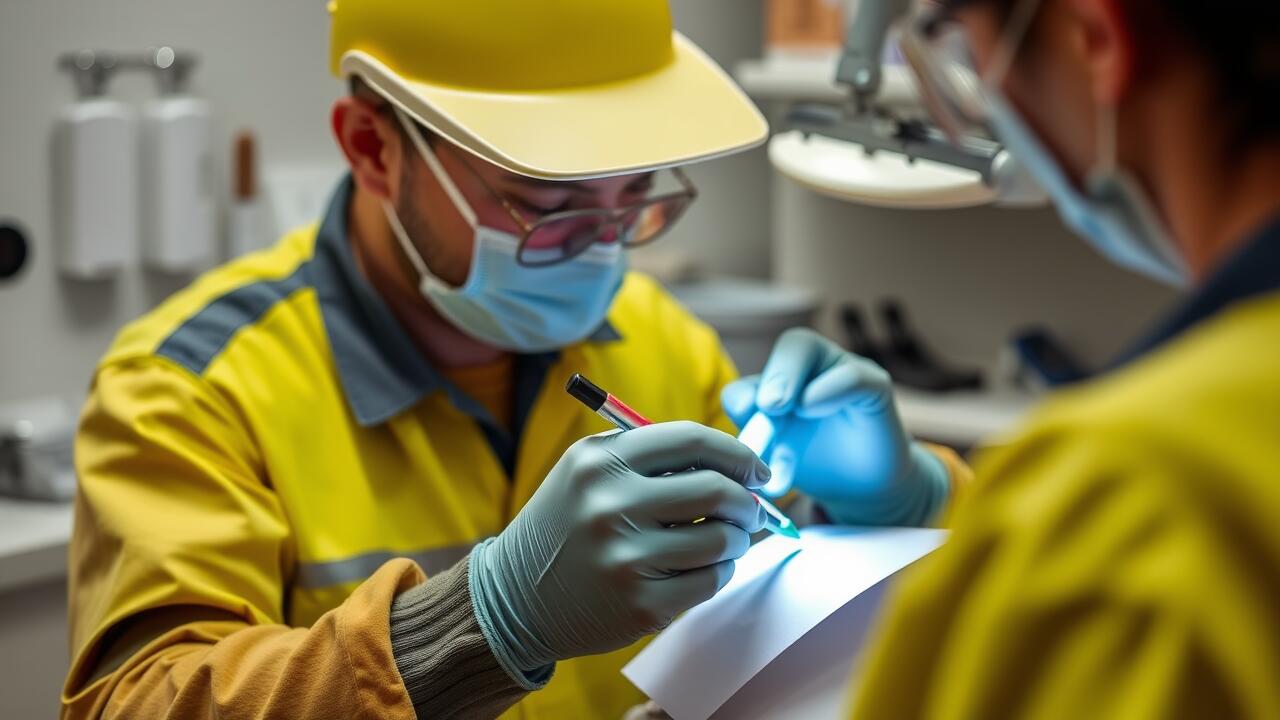
Regular Dental Check-Ups
Regular dental check-ups are essential for maintaining optimal oral health. Visiting your dentist at least twice a year allows for professional teeth cleaning, which removes plaque and tartar build-up that regular brushing cannot always eliminate. These appointments also provide an opportunity for early detection of dental issues, reducing the risk of more severe problems in the future. Dentists can assess gums and teeth thoroughly, ensuring that any potential concerns are addressed promptly.
During these visits, patients receive tailored advice on improving their oral hygiene practices. Dentists may suggest specific techniques or tools for teeth cleaning, making it easier to maintain proper care between appointments. Having professional insights aids in reinforcing good habits at home, contributing to a healthier smile and preventing complications later on. Regular visits promote accountability and empower individuals to take charge of their dental health.
Have a peek at this blog for further readings.
How Often Should You Visit the Dentist?
Regular dental check-ups play a crucial role in maintaining oral health. Most dental professionals recommend visiting the dentist at least twice a year for routine examinations and teeth cleaning. These visits allow for the early detection of potential issues, ensuring that any problems, such as cavities or gum disease, can be addressed promptly. Consistent checks also help to keep your teeth and gums in optimal condition, contributing to overall well-being.
In some cases, individuals may require more frequent visits based on their oral health status. Patients with a history of dental issues, such as sensitivity or periodontal disease, might benefit from check-ups every three to four months. The frequency will depend on personal dental care practices and any specific recommendations from your dentist. Prioritising regular visits can significantly enhance the effectiveness of your at-home routines, including teeth cleaning.
At-Home Teeth Whitening Tips
At-home teeth whitening can be an effective way to enhance your smile without the need for professional treatments. Various over-the-counter options are available, such as whitening toothpaste, strips, and gels. These products often contain hydrogen peroxide or carbamide peroxide, which help remove surface stains from your teeth. Incorporating regular teeth cleaning into your dental routine can also aid in maintaining a brighter smile, as removing plaque and tartar buildup is essential for effective whitening.
Natural remedies have gained popularity for those seeking gentler methods. Baking soda mixed with water can create a paste that helps to exfoliate and remove stains. Another option is using activated charcoal, which many believe can attract and absorb impurities from the teeth. Despite the appeal of these home remedies, it is important to use them in moderation. Regular dental visits and professional cleanings complement at-home efforts, ensuring that your teeth remain healthy while achieving the desired brightness.
Safe Methods for Brightening Your Smile
When it comes to brightening your smile, there are several safe methods to consider that prioritise dental health. Over-the-counter whitening strips can be an effective solution. These strips are easy to use and often contain peroxide, which helps lift stains from the surface of your teeth. Additionally, some people prefer using whitening toothpaste, designed to remove discolouration while also promoting teeth cleaning. It is crucial to choose products that have been approved by dental health organisations to ensure their safety and efficacy.
Another option includes professional treatments available at dental clinics. Dentists offer services such as in-office whitening procedures that provide immediate results. For those looking for a more gradual approach, custom-fitted whitening trays can be used at home, allowing for controlled and consistent application. Always consult with your dentist before starting any whitening regimen. They can help assess your teeth’s condition and recommend methods that align with your overall dental health, ensuring that teeth cleaning practices are upheld.
Dealing with Sensitive Teeth
Tooth sensitivity can be a frustrating experience, often triggered by hot or cold foods and sudden temperature changes. Many people in Frenchay find relief by choosing toothpaste specifically designed for sensitive teeth. These products typically contain compounds that help to block sensation in the nerves within the teeth. Ensuring a consistent teeth cleaning routine also plays a vital role in managing sensitivity, as maintaining good oral hygiene reduces the risk of gum disease and enamel erosion, both of which can contribute to discomfort.
In addition to using the right toothpaste, mindful eating can help ease symptoms. Avoiding highly acidic foods or beverages minimises irritation. Regularly visiting a dentist for check-ups allows professionals to identify underlying issues that could be exacerbating sensitivity. Incorporating gentle brushing techniques during teeth cleaning can also prevent further wear on the enamel, leading to a more comfortable experience over time.
Tips for Managing Tooth Sensitivity
Sensitive teeth can be a common issue for many individuals, often stemming from enamel erosion or gum recession. To manage this discomfort, opt for a toothpaste specifically designed for sensitive teeth. These products contain compounds that help block sensation and provide relief over time. Additionally, practice gentle brushing techniques using a soft-bristled toothbrush to avoid further irritation during your daily teeth cleaning routine.
Another effective method for dealing with sensitivity involves avoiding certain triggers. Hot or cold foods, as well as sweet or acidic items, can exacerbate the pain. Maintaining a consistent teeth cleaning schedule and rinsing with a fluoride mouthwash may strengthen enamel and further protect against sensitivity. If discomfort persists, consulting a dental professional is advisable, as they can provide tailored advice or treatments aimed at alleviating the issue.
FAQS
How often should I visit the dentist for a check-up?
It is generally recommended to visit the dentist every six months for a routine check-up, but your dentist may suggest a different frequency based on your specific dental health needs.
What are some effective at-home teeth whitening methods?
Some safe at-home teeth whitening methods include using whitening toothpaste, over-the-counter whitening strips, and natural remedies like baking soda mixed with water. However, always consult with your dentist before trying new products.
What causes tooth sensitivity, and how can I manage it?
Tooth sensitivity can be caused by various factors, including worn enamel, gum recession, or cavities. To manage it, consider using desensitising toothpaste, avoiding extremely hot or cold foods, and discussing treatment options with your dentist.
Are there any risks associated with at-home teeth whitening?
Yes, there are potential risks such as tooth sensitivity, gum irritation, and uneven results. It's essential to follow instructions carefully and consult your dentist before starting any whitening treatment.
Can diet affect my dental health?
Absolutely! A diet high in sugar and acidic foods can lead to tooth decay and erosion. Eating a balanced diet rich in fruits, vegetables, and dairy can help maintain good dental health.

